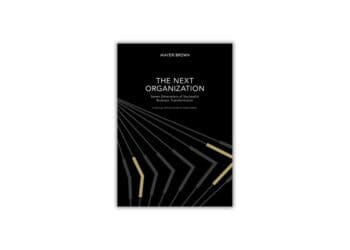5 Key Areas to Improve Now
While business processes are an absolute necessity for effective governance, risk management and compliance, the static documents many companies use to store process information simply don’t work. They’re not functional, usually inaccessible and often difficult to manage. They’re also not engaging, which is a huge problem, especially for younger workers. But there is hope if your company focuses on five key areas for process improvement.
Business processes play an important role in effective governance, risk management and compliance. But while process improvement methodologies and techniques have evolved over the years, many businesses haven’t changed the way they manage their processes.
Many companies still store and share critical process knowledge in Word documents, spreadsheets or Visio diagrams. Why is that such a big deal? In a word, millennials. Millennials – those 54 million adult Americans between 18 and 34 who now make up one-third of the U.S. workforce – are unlikely to be engaged by a complex flow chart or Word document. Their default is smartphones, tablets and web apps. If you want to communicate with them effectively or drive home a policy, you better do it via an app or a 30-second video.
Static documents have always done a bad job of providing teams with a positive and engaging user experience. Their functionality and accessibility are usually marginal at best. While they are relatively easy to create, they’re difficult to manage. Making a simple change to a procedure might require searching for and updating numerous documents, including a summary, a flow chart and a related form. These documents are often stored in multiple locations, such as the company’s intranet and on individual staff computers, making it almost impossible to keep them up to date.
Static procedure documents make it difficult to notify staff of process changes and ensure everyone is using the most current version of a process or form. Processes that are inaccessible and out of date provide limited business value, and in fact, can sometimes expose employees and the business unnecessary risk.
To address their process management challenges, many companies begin by gathering all of their process information together in one place. While that’s certainly a good start, a central process repository often still does not solve process engagement or access issues. Depending on where and how it’s stored, centralized process storage may still do little to provide staff with easy access to processes.
For a truly effective and sustainable approach to process management, businesses should focus on five key areas:
- First, companies must establish executive buy-in and leadership. Without visible leadership and support, not just at the senior management level, but throughout the entire organization, the business will be unable to bring about real change to the way they manage and continuously improve their process IP.
- Next, process information needs to be presented in a user-friendly format and must be relevant. Staff should have a personalized dashboard where they can see the processes they use. Processes, in turn, need to be presented in simple steps, with more detail available as needed. Process users should be able to find, read and digest high-level process information in 30 seconds or less.
- Employees should also be able to access and share process information easily and ideally from multiple places, including software programs they already use regularly.
- Everyone across the business must feel empowered to suggest process improvements. Process owners should be responsible for changing and improving processes to keep them up to date. And since the best process improvement suggestions often come from the people who use the processes every day, it must be easy for all staff members to provide feedback and recommend process changes as necessary.
- Finally, businesses need a process improvement approach that makes change management fast and simple. Editing a process shouldn’t be difficult. And once changes have been made, all impacted stakeholders need to be made aware of the process changes in a way that avoids complex and time-consuming updates of multiple documents. Leadership teams should also be able to see at a glance how many processes the company has and when they were last updated.
It may seem simple, but creating process knowledge that is engaging, accessible and current can have a huge impact on staff engagement, governance, risk management and compliance – and ultimately to overall business performance.



 Ivan Seselj is CEO of Promapp Solutions, an industry-leading provider of cloud-based process management (BPM) software for creating and managing business processes online. You can contact him at
Ivan Seselj is CEO of Promapp Solutions, an industry-leading provider of cloud-based process management (BPM) software for creating and managing business processes online. You can contact him at 







